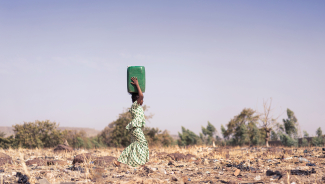FILTER
Displaying 41 - 50 of 600 publications
Abstract Understanding the determinants of CO2 emissions remains crucial in addressing global climate change. This paper investigates the drivers of CO2 emissions from both consumption and production…
| Peer Reviewed | NigeriaThe success of Chilean salmon farming’s early cultivation stages is largely facilitated by access to high-quality water, which is provisioned by watersheds dominated by native forests and defined by…
| Peer Reviewed | ChileAbstract This paper examines the impact of positive and negative rainfall shocks on child labor in agricultural households in Ethiopia. We are the first to investigate how the presence of a public…
| EfD Discussion Paper | Sweden, Ethiopia
Climate change is increasing rainfall uncertainty, which has gendered impacts on rural labour markets. After droughts, women are less likely to access non-farm employment through migration than men...
| Peer Reviewed | IndiaAbstract Microplastics, an emerging pollutant, have garnered widespread attention due to potential repercussions on human health and the environment. Given the critical role of seafood in food…
| Peer Reviewed | ChileAbstract Part of the literature informs that different regions of the world contribute to greenhouse gas emissions in varying degrees, in global warming. It also highlights that these regions…
| Peer Reviewed | EthiopiaSummary South America is experiencing the effects of climate change, including extreme weather events and changes in temperature and precipitation patterns. These effects interact with existing social…
| Peer Reviewed | ColombiaSummary This scoping review assesses the current evidence on the health impacts of climate change and associated economic costs in South America. In total, 3281 studies were identified using a…
| Peer Reviewed | ColombiaQuantifying drought's economic impacts has been key for decision-making to build future strategies and improve the development and implementation of proactive plans. However, climate change is…
| Peer Reviewed | ChileThere has been a dramatic decline in cocoyam production in Nigeria in recent years due to climate related stressors. We investigated the nature and extent of these impacts and the resilience building…
| Peer Reviewed | Nigeria
